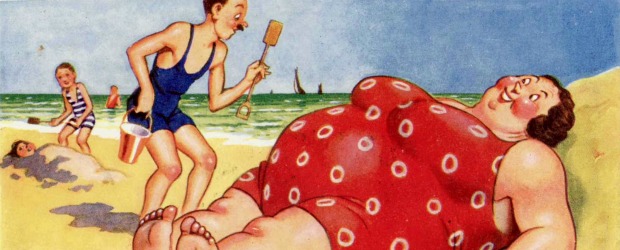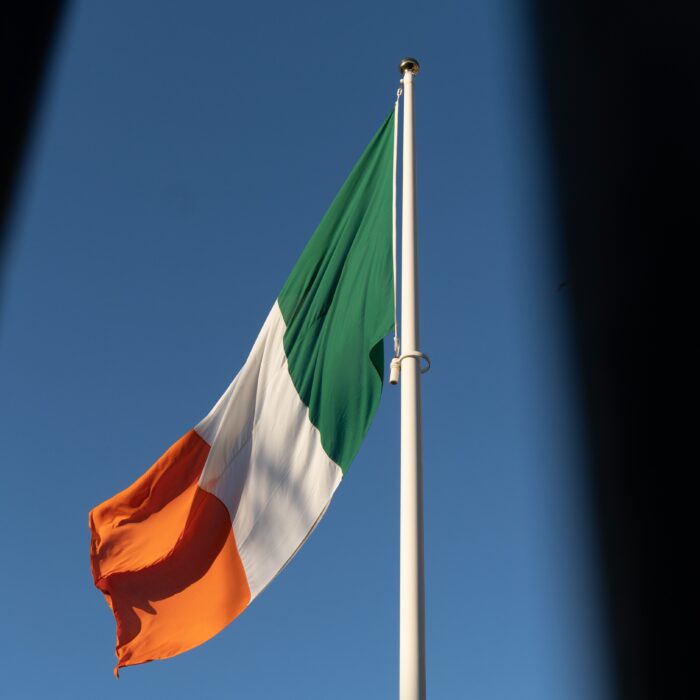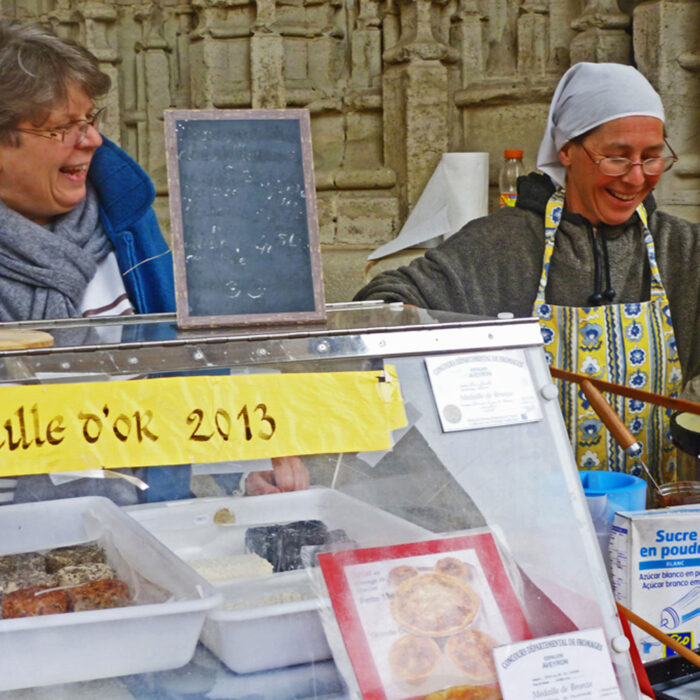You have no items in your cart. Want to get some nice things?
Go shopping
“She’s a nice girl. Doesn’t drink or smoke and only swears when it slips out.”
It’s a coarse double-entendre but these days few would get too upset about it. But sixty years ago, on 15 July, 1954, Donald McGill was found guilty of breaking the Obscene Publications Act (1857) with his saucy postcards, four being banned immediately. His publishers were prevented from reissuing seventeen others.
McGill dominated the word of seaside postcards, showing a view on life that appears quaint and amusingly old-fashioned to today’s eyes. Now the postcards are collectors’ items and there is a museum in Ryde on the Isle of Wight dedicated to him. Children are welcomed as visitors so there is clearly no worry they will be corrupted. McGill had talent and his work represents a particularly British artform. Over his 50-year career, he produced around 12,000 designs and sold around 200 million postcards, justifying his title as ‘King of the Saucy Postcard’.
McGill classified the vulgarity of his work as mild, medium and strong; the latter were by far the best sellers. Anyone visiting a seaside town in Britain in the early fifties could not have avoided seeing the ubiquitous postcards. Conventional middle-aged ladies who would normally reject rudeness and impropriety with vigour queued up to make their selections at shops on the seafront. It was as if being on holiday allowed a different side of their personalities to appear, just for a week.
Children enjoyed the postcards and could hardly avoid seeing them. They found the sight of big-buttocked, big-breasted women funny and possibly a little naughty; whether or not they understood the implied humour was irrelevant. They laughed at the red-nosed drunkard returning home to an irate wife in her flannelette nightdress, hiding behind the door with a poker. The man hanging on to a pink, phallic stick of rock was just a strong man with a penchant for peppermint.
McGill had his regular targets and standard types of joke. Women were either young and shapely or middle-aged and fat. What happened in between was clearly not funny in his eyes. Men could have the shape of an Adonis or be hen-pecked (overweight and weedy by turns). Lawyers were swindlers, vicars were nervous and inept and in terms of nationality, the Scots were the butt of many jokes, particularly if wearing a kilt. Political correctness was unknown, so illegitimate babies, missionaries and old maids were all mocked. Honeymoon couples were an endless source of amusement. Large vegetables, mostly melons and marrows, played a predictable part in the cartoons. A bit of nudity, veiled erections, chamber pots, flimsy underwear and ‘drawers’: the stuff of schoolboy humour, all used time after time.
Some of his people were caricatures of the Englishman’s secret ideal, not portraits, hence the ridiculously over-tight clothing and the girls with a twinkle in their eye. Sex, in one form or another, was the most common theme. His wives nagged and their husbands’ mother-in-laws were tyrannous but in using these stereotypes, he recognised the permanence of marriage.
He said himself that his work was a “skit on pornography”, obscene sometimes but not immoral. They were saucy or risqué, raising a titter rather than a leer. However, in 1954 the newly-elected conservative government was concerned about the post-war deterioration in morals. Following the obscenity trial, sales of the cards plummeted. The ‘Swinging Sixties’ saw a resurgence but what we laugh at changes and the postcard revival didn’t last. Today, we have a more liberal approach to coarse jokes and language but a greater emphasis on political correctness. Although the postcards have historical and artistic value, it’s doubtful if anyone would find new art of that type acceptable now.
Donald McGill was not the only postcard artist – seaside visitors had a good choice. Tom Browne, Will Owen, Harry Rountree and Phil May all had their own styles and topics but were mostly inoffensive and twee rather than daring. James Bamforth, the most successful producer of cheeky postcards, published designs by Arnold Taylor, Philip Taylor and Brian Fitzpatrick as well as McGill. These had themes similar to those of McGill with cheeky captions, bright colours and exaggerated characters. None, however, had McGill’s command of the ‘saucy’ market.
Artistic recognition, nevertheless, was slow in coming. In 1941, George Orwell wrote an essay on the work of Donald McGill, a serious analysis where he described the overbearing vulgarity, crude drawing and unbearable colours of the postcards. He saw their popularity as a rebellion against convention and a reflection of a repressed British society. He did, however, admit that he would be sorry to see them vanish. Later opinions refute Orwell’s views and recognise McGill’s skill as a cartoonist.
Little did Donald McGill realise when, at the age of 79, he was found guilty of obscenity, paying a £50 fine (with £25 costs), that his original, colour-washed drawings would now raise several thousand pounds each. He never earned more than three guineas a design. The naval draughtsman who got into postcards after a relative saw a get-well card he had designed and decided it should be sent to a publisher has now had work displayed at the Tate. Interestingly, the ban on the postcards has never actually been revoked.

About Linda Fawke
Linda is an arts person who pursued a scientific career but now has the time to write. She writes fiction, non-fiction and poetry. She has published in various magazines including Berkshire Life and The Oldie, and has been a winner of the Daily Telegraph 'Just Back' travel writing competition and the Litro 'NanoWriMo experience' competition. She has just completed her first novel.




